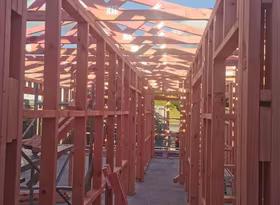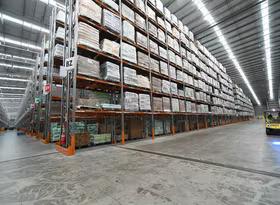Media Release: Double-dip recession next year, but housing rolls on
Despite rebounding well from the initial lockdown and effects of the COVID-19 pandemic so far, the New Zealand economy remains vulnerable, according to the latest projections from Infometrics. The company is forecasting a double-dip recession to hit during 2021, as delayed job losses punch a hole in consumer spending and drag economic activity lower.
“The next few months will be crunch time for the New Zealand economy,” says Infometrics Chief Forecaster Gareth Kiernan. “The loss of international visitors will be keenly felt by tourism operators during the normally busy summer month, while retailers will also be hoping that spending momentum continues into Christmas. Other businesses are also likely to reassess their staffing requirements heading into the new year if there is any softness in demand conditions.”
Infometrics is forecasting a decline in employment of 186,000 jobs by June 2021 compared with pre-pandemic levels. This outlook compares relatively favourable with fears of more than 300,000 job losses at the height of April’s lockdown. The government’s wage subsidy and other support can be viewed as successfully mitigating the effects of the pandemic response on the economy and job numbers.
It is possible that job losses of this magnitude are not guaranteed if the economy maintains the momentum of the last few months. But if the unemployment rate does climb above 8% next year, Infometrics expects a contraction of more than 3% in both private consumption spending and GDP in the first nine months of 2021. Alongside job losses, declines in hours worked and weaker earnings growth will also constrain household spending.
One part of the economy that has emerged unscathed from COVID-19 has been the housing market. Demand for housing has been buoyed by a spike in returning New Zealanders and record low interest rates. Infometrics expects house price growth to slow during 2021, given clear signs that the influx of Kiwis has now slowed, but a decline in property prices now appears unlikely.
“Renewed house price rises have been a side-effect of the Reserve Bank’s efforts to stimulate the economy,” says Mr Kiernan. “Job losses to date have been concentrated among segments of the population that are less likely to be homeowners. The ongoing surge in house prices is exacerbating the uneven effects of COVID-19 and amplifying inequality issues within New Zealand.”
“The economy has been regaining momentum, and the question now is if we can sustain this path ahead. Risks remain to our outlook, particularly due to the precarious position of the global economy, but our domestic performance means we’ve weathered the immediate storm as well as could be expected.”


















